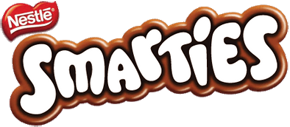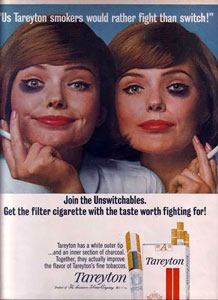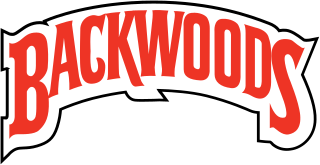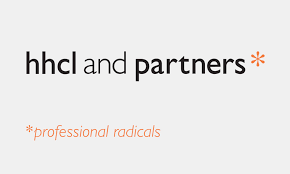Does Exactly What It Says on the Tin Company
Does exactly what it says on the tin
Last updatedEnglish phrase
"It does exactly what it says on the tin" was originally an advertising slogan in the United Kingdom, which then became a common idiomatic phrase. [1] [2] It colloquially means that the name of something is an accurate description of its qualities. It is akin to the previously existing phrases "by name and by nature" and "it lives up to its name". It originated in a series of television advertisements by the woodstain and wood-dye manufacturer Ronseal, initiated in 1994 [3] and still being broadcast in advertisements and online media as of 2021 [update] . [4]
The slogan was created by Liz Whiston and Dave Shelton at the London advertising agency HHCL. [5] The idea of the phrase was to emphasise that the company's products would act and last for the amount of time exactly as described on the tin can. The word tin is generally used even when the product is sold in a different type of container, although box is also sometimes used. The expression soon entered common usage in the UK. [2]
The phrase is also commonly known and used in Ireland. The Ronseal advertising campaign has also been shown there, and UK television is widely available in Ireland. In 2004, toothpaste manufacturer Colgate began a similar copycat advertising campaign in Ireland stating that its product "does exactly what it says on the tube".
The phrase is a registered trademark of the Sherwin-Williams Company, the owner of Ronseal, across the European Community for products including paints, varnishes, and wood preservatives (E3085826). [6]
In 2007, a song titled "What It Says on the Tin" was released by the British singer Katie Melua. Although the song is about relationships, the phrase has a similar meaning.
Related Research Articles

Advertising is a marketing communication that employs an openly sponsored, non-personal message to promote or sell a product, service or idea. Sponsors of advertising are typically businesses wishing to promote their products or services. Advertising is differentiated from public relations in that an advertiser pays for and has control over the message. It differs from personal selling in that the message is non-personal, i.e., not directed to a particular individual. Advertising is communicated through various mass media, including traditional media such as newspapers, magazines, television, radio, outdoor advertising or direct mail; and new media such as search results, blogs, social media, websites or text messages. The actual presentation of the message in a medium is referred to as an advertisement: advert or ad for short.

A slogan is a memorable motto or phrase used in a clan, political, commercial, religious, and other context as a repetitive expression of an idea or purpose, with the goal of persuading members of the public or a more defined target group. The Oxford Dictionary of English defines a slogan as "a short and striking or memorable phrase used in advertising." A slogan usually has the attributes of being memorable, very concise and appealing to the audience.

A television advertisement is a span of television programming produced and paid for by an organization. It conveys a message promoting, and aiming to market, a product or service. Advertisers and marketers may refer to television commercials as TVCs.
Advertising slogans are short phrases used in advertising campaigns to generate publicity and unify a company's marketing strategy. The phrases may be used to attract attention to a distinctive product feature or reinforce a company's brand.
Bollocks is a word of Middle English origin, meaning "testicles". The word is often used figuratively in British English and Hiberno-English in a multitude of negative ways; it most commonly appears as a noun meaning "rubbish" or "nonsense", an expletive following a minor accident or misfortune, or an adjective to describe something that is of poor quality or useless. It is also used in common phrases like "bollocks to this", which is said when quitting a task or job that is too difficult or negative, and "that's a load of old bollocks", which generally indicates contempt for a certain subject or opinion. Conversely, the word also appears in positive phrases such as "the dog's bollocks" or more simply "the bollocks", which will refer to something which is admired or well-respected.
In marketing, the unique selling proposition (USP), also called the unique selling point, or the unique value proposition (UVP) in the business model canvas, is the marketing strategy of informing customers about how one's own brand or product is superior to its competitors.

"Just Say No" was an advertising campaign prevalent during the 1980s and early 1990s as a part of the U.S. "War on Drugs", aiming to discourage children from engaging in illegal recreational drug use by offering various ways of saying no. The slogan was created and championed by First Lady Nancy Reagan during her husband's presidency.

Smarties are colour-varied sugar-coated chocolate confectionery. They have been manufactured since 1937, originally by H.I. Rowntree & Company in the UK, and are currently produced by Nestlé.

Cadbury Dairy Milk is a British brand of milk chocolate manufactured by Cadbury. It was introduced in the United Kingdom in 1905 and now consists of a number of products. Every product in the Dairy Milk line is made with exclusively milk chocolate. In 2014, Dairy Milk was ranked the best-selling chocolate bar in the UK. It is manufactured and distributed by the Hershey Company in the United States under licence from Cadbury. The chocolate is now available in many countries including India, Kazakhstan, China, Sri Lanka and Pakistan.
Ronseal is a British wood stain, paint and preservative manufacturer, known for the "Does exactly what it says on the tin" phrase. The advertising slogan, which was created by agency HHCL, has since entered popular culture.

Alcohol advertising is the promotion of alcoholic beverages by alcohol producers through a variety of media. Along with tobacco advertising, alcohol advertising is one of the most highly regulated forms of marketing. Some or all forms of alcohol advertising are banned in some countries. There have been some important studies about alcohol advertising published, such as J.P. Nelson's in 2000.

So where the bloody hell are you? was a A$180 million advertising campaign launched by Tourism Australia in 2006. It was created by the Sydney office of the London advertising agency M&C Saatchi, under the approval of Scott Morrison, who was then managing director of Tourism Australia.
"Winston tastes good like a cigarette should" is an advertising slogan that appeared in newspaper, magazine, radio, and television advertisements for Winston cigarettes, manufactured by R. J. Reynolds Tobacco Company. Reynolds used the slogan from Winston's introduction in 1954 until 1972. It is one of the best-known American tobacco advertising campaigns. In 1999, Advertising Age included the "Winston tastes good like a cigarette should" jingle in its list of the 10 best radio and television jingles in the United States during the 20th century.

"Us Tareyton smokers would rather fight than switch!" is a slogan that appeared in magazine, newspaper, and television advertisements for Tareyton cigarettes from 1963 until 1981. It was the American Tobacco Company's most visible advertising campaign in the 1960s and 1970s.
Apple Inc. has had many notable advertisements since the 1980s. The "1984" Super Bowl commercial introduced the original Macintosh mimicking imagery from George Orwell's 1984. The 1990s Think Different campaign linked Apple to famous social figures such as John Lennon and Mahatma Gandhi, while also introducing "Think Different" as a new slogan for the company. Other popular advertising campaigns include the 2000s "iPod People", the 2002 Switch campaign, and most recently the Get a Mac campaign which ran from 2006 to 2009.

Backwoods Smokes are a brand of cigars produced in the United States beginning in 1973. This product was notable during the 1970s and 1980s for heavy advertising, which became one of the more obvious examples of how companies at the time reacted to changing laws and cultural views on public health and the smoking culture.

HHCL was an advertising agency based in London. The agency devised campaigns for Tango, including the Orange Man commercial in 1991, and St George, for Blackcurrant Tango, in 1997. In 1994, it created the Does exactly what it says on the tin campaign for Ronseal.

Guinness is an Irish dry stout that originated in the brewery of Arthur Guinness at St. James's Gate, Dublin, Ireland, in 1759. It is one of the most successful alcohol brands worldwide, brewed in almost 50 countries, and available in over 120. Sales in 2011 amounted to 850 million litres (190,000,000 imp gal). In spite of declining consumption since 2001, it is the best-selling alcoholic drink in Ireland where Guinness & Co. Brewery makes almost €2 billion worth of beer annually.
Orange Man is a British television advertisement for the soft drink Tango Orange. Created by advertising agency HHCL, a longtime collaborator of Tango. The advertisement was produced in 1991 and aired in 1992, and was the first in the brand's "You Know When You've Been Tango'd" campaign that would continue until 1996 before returning for several years in the 2000s.

Shinola is a defunct American brand of shoe polish. The Shinola Company, founded in Rochester, New York in 1877 as the American Chemical Manufacturing and Mining Company, produced the polish under a sequence of different owners until 1960. "Shinola" was a patented name and trademark for boot polish. The suffix -ola is a popular component of trade names in the United States. It was popular during the first half of the 20th century and entered the American lexicon in the phrase, "You don't know shit from Shinola," meaning to be ignorant. The brand name was acquired by the retail company Shinola in 2011.
References
- ↑ Eric Partridge, Tom Dalzell, Terry Victor. The Concise New Partridge Dictionary of Slang and Unconventional English, 2007. Page 653.
- 1 2 Jim Blythe. Consumer behaviour, pg.116
- ↑ Stamp, Gavin (18 June 2006). "Probably the best corporate slogan..." BBC News Online . Retrieved 18 September 2007.
- ↑ How To Re-Stain Decking | DIY Tips from Ronseal , retrieved 12 November 2021
- ↑ "The Ronseal phrase: It does exactly what it says on the tin". BBC News. BBC News Online. 8 January 2013. Retrieved 25 May 2015.
- ↑ "Community Trade Mark E3085826" . Retrieved 29 August 2011.
This page is based on this Wikipedia article
Text is available under the CC BY-SA 4.0 license; additional terms may apply.
Images, videos and audio are available under their respective licenses.
Does Exactly What It Says on the Tin Company
Source: https://WikiMili.com/en/Does_exactly_what_it_says_on_the_tin
0 Response to "Does Exactly What It Says on the Tin Company"
Post a Comment